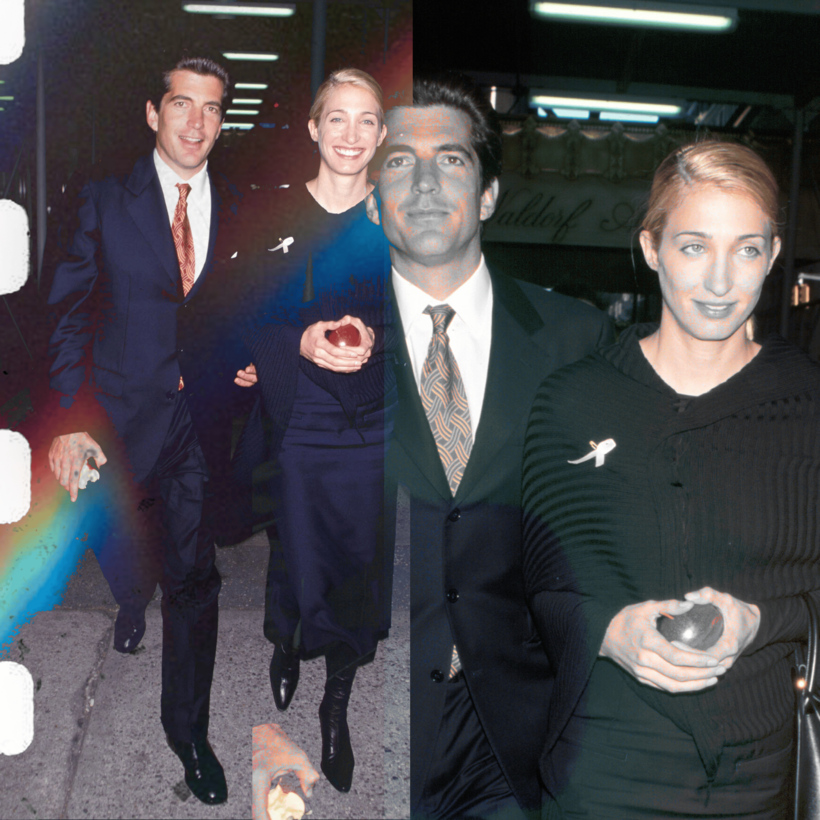This summer marks 26 years since John F. Kennedy Jr. and Carolyn Bessette-Kennedy died in a plane crash along with Carolyn’s sister Lauren. Yet the young couple may be more famous now than ever before, with a new generation devoted to their fashion on social media; books and podcasts examining their influence; and a highly anticipated Hollywood project in production.
For us, that fateful crash was one of the most unforgettable “I remember where I was when … ” moments, seared into our memories not just by tragedy but by its cultural weight. Its impact has compelled us to examine what these two icons mean to the fabric of American culture, both then and now. That’s what we set out to explore in our new CNN documentary series, American Prince: JFK Jr.
So why is the world still obsessed with them? There are a few easy explanations. John was the scion of a political dynasty, the powerful couple was unbelievably gorgeous, and their young lives ended suddenly in a shocking accident.

Though their every step was subjected to speculation and scrutiny, what drove them in private is largely unknown. As we pulled at the threads of their story, we uncovered new levels of substance, depth, and twisted irony offering a more complex explanation for their enduring legacy. It starts with taking a look at the media’s role in the arc of their lives, the great irony being that these two people who were experts in shaping the media were also haunted by it.
If John F. Kennedy Sr. was our first television president, then John junior was one of the first public figures to live his entire life in the spotlight. The world watched as he grieved, grew up, and began to chart his own path—not always a smooth one. By the time he was an adult, paparazzi followed him everywhere, gossip columns dissected his dating life, and pundits debated when he would follow his family into politics. But after law school, John pursued a different career: the magazine business.
Like his father, who harnessed the rise of television to connect directly with the American public in the early 1960s, John recognized how the glossy magazines of the 1990s were shaping culture and decided to start his own, called George. (It’s no surprise that another generation of the Kennedy family mastered today’s modern medium—Jack Schlossberg rose to fame on social media.)
John does not always get credit as a great political thinker, but George was ahead of its time. He recognized the coming collision of politics and pop culture and created George to bridge the gap, seeking common ground between these two worlds long before America welcomed its first reality-TV president.

Yet while he was building a media company, John was also the subject of relentless media scrutiny. The constant barrage of camera flashes, shouted questions, and baseless speculation took its toll on his personal life, and especially his relationship with Carolyn.
Carolyn Bessette-Kennedy is now widely considered an icon, but she was a private person, very much in control of her own image and intensely protective of John. Despite the fact that she was one of the most photographed women of her time, we were surprised to discover in our research for the documentary series that she never gave a formal interview. This lack of access led the press to fill in the blanks, often unfairly, labeling her as cold, standoffish, an “ice princess,” and other sexist tropes. The tabloids created a cruel narrative about Carolyn that obscured her true nature, but she never responded.
We learned through interviews and archives that her silence was not born out of submission but strategy; she was more of a force than most people realize. Carolyn was smart and ambitious—a successful publicist for Calvin Klein entrusted with meticulous image management. Privately, she advised John on matters related to George as well as his own public profile. And as George began to stumble under business tensions, so did their marriage under the pressure of the spotlight.

Several of John’s friends told us he took up flying because it offered an escape—a sense of control, a way to feel free from the stresses on the ground. That desire for control is ultimately what led him to pilot a small aircraft on that fateful foggy night.
Though they were going through a difficult time, John and Carolyn seemed to have limitless opportunity ahead of them. John may have intended to shutter George and enter politics, as so many expected him to do. Carolyn may have taken a more prominent role in shaping the public narrative about their lives. In death, John and Carolyn have become something else entirely: symbols of lives full of promise and the profound humanity of loss.
American Prince: JFK Jr. premieres tonight on CNN. The three-part series will air Saturday nights going forward
Rebecca Gitlitz is the show-runner of American Prince: JFK Jr.
Jon Adler is an executive producer of American Prince: JFK Jr. and the head of talent and content development at EverWonder Studio

